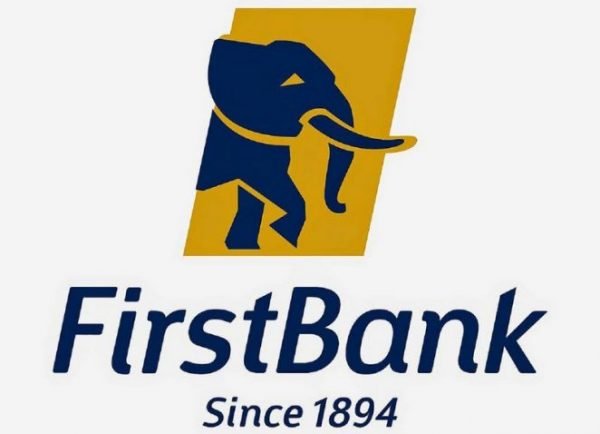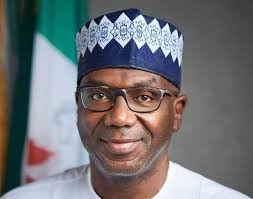Economy
Global Private Equity Assets Hit $4.50trn in 10 Years — FMDQ

The Chief Executive Officer, FMDQ Group, Mr Bola Onadele, says that the global private equity Asset Under Management (AUM) has hit $4.50 trillion in the last 10 years. Onadele disclosed this at the Coronation Merchant Bank interactive session webinar with the theme: “Capital mobilisation through the private markets,” on Monday in Lagos.
Onadele, in his keynote address at the webinar, said that part of these global funds were finding their way into Africa, especially Nigeria. He, however, urged private companies in Nigeria to tap into the opportunities in the market for growth and development. “As is the case in global private markets (PE) where private equity accounts for 60 per cent of total AUM, private markets in Africa and Nigeria is dominated by the PE segment,” he added. Onadele, who was represented by the Head, Private Capital, FMDQ Private Markets Ltd., Mr Yemi Osinubi, said that recent survey showed that Nigeria ranks second in the attractiveness of African countries for PE investments over the last three years. He said that healthcare and life sciences, technology, and agribusiness were viewed as the most attractive sectors over the next three years. Onadele attributed the shift to private capital to the global liquidity crisis of 2008 and 2010. He noted that traditional source of capital has become less available because of the tightening of the Basel two requirements for banks. “Private equity AUM has gone up four times since 2002, since 2015 worth of private equity deal volume has exceeded equity deal in volume,” he said. Onadele said that institutional investors across the world were seeking for alternative channels on their growing funds, especially in infrastructure funds. Speaking on the drivers for PE, he added that raising capital in the public markets comes with high regulatory requirements and the cost of compliance for public companies were high. “As such, many companies prefer to remain private for as long as possible and take advantage of the private capital market,”Onadele said. According to him, the private markets give investors access to uncommon investment opportunities while providing diversification benefits. He noted that the primary goal for the establishment of FMDQ Private Markets Ltd was to democratise the capital markets by promoting the inclusion of private companies and unleash the largely untapped pool of private capital in Nigeria. Onadele disclosed that the platform had witnessed about N264 billion in notes since it was set up in 2020. “In 2020, about N100 billion in private company bonds were noted on the platform, this half year alone we have about N153 billion in noting. “We had a mix of promissory notes, corporate bonds, Sukuk bonds and we are having first Green Bond that will be noted in the coming month also. “Our equity guideline should be coming out very soon, FMDQ is known for bonds but we have been in discussion with venture capital community, the private equity community on how to develop this equity market for them. “And we think its going to be a robust market for them that will help small to medium term businesses who are trying to raise capital. “Our equity guideline will be out within a month and we will start the noting of equity securities,”he said. Earlier, the Managing Director of Coronation Merchant Bank, Mr Banjo Adegbohungbe, said the interactive session was instituted to stimulate discourse and to clarify an enhanced pertinent economic and societal issues as well as develop credible and workable solutions to common challenges. “It is our intention to continue to facilitate productive engagements like this with relevant stakeholders in order to generate solutions for critical sections of the economy and to add value to our existing and potential customers alike. “We choose the theme of today’s session: “Capital mobilisation through the private markets, specifically because of the potential we see in the private segment of the Nigerian capital market. “This market has had its fair share of missteps in the past but we have begun to observe very credible and increasingly sustainable structures being built to organise the otherwise arbitrary situation earlier observed in this sector of the market. “From technology to renewable energy and various other sectors, it is now obvious that companies need to become publicly quoted to attract much needed capital,” Adegbohungbe said. He noted that with clarity on entry, monitoring and exit, investors would make more informed decisions on the investment opportunities that were abound in credible private companies. (NAN)Economy
CBN Takes Steps to Strengthen Banking Sector, Issues Routine Transitional Guidance

The Central Bank of Nigeria (CBN), has introduced time-bound measures for some banks still completing their transition from the temporary regulatory support provided in response to the economic impact of the COVID-19 pandemic.
According to a statement issued by Mrs Hakama Sidi-Ali, , CBN’s Acting Director, Corporate Communications Department , this is part of its ongoing efforts to strengthen the banking system.
Sidi-Ali said that the step was part of the CBN’s broader, sequenced strategy to implement the
recapitalisation programme announced in 2023.
She said that the programme, designed to align
with Nigeria’s long-term growth ambitions, had already led to significant capital inflows and balance sheet strengthening across the sector.
“Most banks have either completed or are on track to meet the new capital requirements well before the final implementation deadline of March 31, 2026.
“The measures apply only to a limited number of banks. These include temporary restrictions on capital distributions, such as dividends and bonuses to support retention of internally generated funds and bolster capital adequacy.
“All affected banks have been formally notified and remain under close supervisory engagement ” she said.
She said that to support a smooth transition, the CBN had allowed limited, time-bound flexibility
within the capital framework, consistent with international regulatory norms.
“Nigeria generally maintains Risk-Based Capital requirements that are significantly more stringent than the global Basel III minimums.
“These adjustments reflect a well-established supervisory process consistent with global norms. Regulators in the U.S., Europe, and other major markets have implemented similar transitional measures as part of post-crisis reform efforts.
“The CBN remains fully committed to continuous engagement with stakeholders throughout this period via the Bankers’ Committee, the Body of Bank CEOs, and other industry forums,” she said.
She said that the goal to ensure a transparent, Nigeria’s banking sector remained fundamentally strong.
According to her, these measures are neither
unusual nor cause for concern.
She said that they were a continuation of the orderly and deliberate implementation of reforms already underway.
She said that the CBN would continue to take all
necessary actions to safeguard the sector’s stability and ensure a robust, resilient financial ecosystem that supports sustainable economic growth. (NAN)
Economy
Cybercrime: First Bank Invests N15bn to Protect Systems From hackers in 5 months –CEO

First Bank HoldCo Plc says it has spent more than N15 billion to protect its systems against criminals between January and June.
Olusegun Alebiosu, the Chief Executive Officer (CEO), First Bank HoldCo Plc, said this in an interview in Abuja on Wednesday.
Alebiosu, who spoke on the sideline of a two-day National Seminar on Banking and Allied Matters for Judges, said the Bank had spent three N3 billion in June to protect its systems.
He said the bank had the best cyber security framework in the country, hence the investment.
The CEO who was speaking on the increasing number of attacks by cybercriminals, especially on banks’ systems, assured First Bank customers of the safety of their monies.
Alebiosu frowned at the rate at which some citizens were involved in cybercrimes, saying the country must move fast to curb their excesses.
”No customer would lose their money in First Bank unjustly.
”If their money is missing in First Bank, First Bank will pay back.
”Before I joined First Bank, I have an account with First Bank.
”One of the reasons why I had an account with First Bank was, I said to myself, if my money is missing, it is the only bank I know I will collect my money without any excuses, ” he said.
Reacting to some customers’ complaints on the delay by the bank to handle cases of fraudulent transactions, Alebiosu said the bank must conduct investigations involving different stakeholders.
The CEO said the delay was caused by the collaboration between the stakeholders involving security agencies and banks where the money was transferred to determine the realities about the cases.
He urged customers to tread carefully in handling and releasing their financial information.
”Customers themselves, most times, also compromise their own security details; I have seen a lot of people that give their cards to somebody to help them withdraw money from their ATM.
”They compromise their password so, when something happens and you say, my money disappeared, you forget the day you gave your card to someone else and they can use that to transfer your money.
”Some people compromise even their own ID on the system carelessly, some give their Bank Verification Number (BVN) and they use it against them.
”Now, why does it take time for the bank to react, everything you give to the bank, the bank has to investigate it.
”The money might have gone to other banks so, you start tracking from other banks but
Sometimes customers are impatient,” he said.
On frauds allegedly perpetrated by staff, he said the bank had internal employee fraud software, that monitors activities of employees on the system.
According to him, if you know how many of our staff we sack on a monthly basis, you won’t believe me.
”So if there are triggers, people will be involved. It is for us to run faster than them, and see how we can help to stop these kinds of things in our system but wherever we see it, we deal with it decisively, ” Alebiosu said.
He said that various stakeholders including the banks, law enforcement agencies and the judiciary had a role to play in curbing cybercrimes. (NAN)
Economy
GTCO Begins Deduction of USSD Fee From Airtime Balance

Guaranty Trust Holding Company (GTCO), says it will begin the deduction of Unstructured Supplementary Service Data (USSD fee from the airtime balance of its customers from June 18.
The bank in a message to its customers on Wednesday, said the N6.98 fee would no longer be deducted from customers’ bank account balance.
”Dear Customer, please be informed that effective June, 18, the N6.
98 USSD fee will be deducted from your airtime balance, no longer from your bank account”.The Nigerian Communications Commission (NCC) had directed deposit money banks (DMBs) to stop deducting charges for USSD transactions directly from customers’ accounts. (NAN)


























